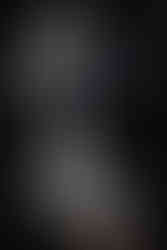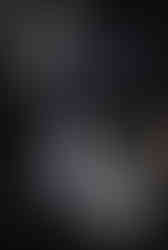How to Hide
- theatredybbuk
- Apr 9, 2021
- 2 min read
Updated: Jul 2, 2025

Season 1, Episode 6
In this episode, presented in collaboration with Lilith magazine, we share excerpts from and explore issues intersecting with a creative non-fiction essay published in Lilith in 1994 titled “How to Hide: Instructions from a Daughter of Survivors.” The work describes how certain perspectives and life behaviors, influenced by their parents' experiences in the Holocaust, show up for the children of survivors.
Karen Propp, the author of the essay, shares her experiences and points of inspiration for the piece, and Dr. Laura Levitt, a professor of religion, Jewish studies and gender at Temple University, takes us through the ways in which our public discourse around the Holocaust evolved while also discussing relationships to historical trauma.
Read the transcript for "How to Hide."
THE TEAM
Hosted by Aaron Henne
Scholarship provided by Laura Levitt, PhD and the essay’s author, Karen Propp
Edited by Mark McClain Wilson
Story editing by Aaron Henne with Julie A. Lockhart
Featuring the voice of Rebecca Rasmussen
Theme music composed by Michael Skloff and produced by Sam K.S.
Transcription by Dylan Southard
"How to Hide" Learning Resources
Articles from Lilith Magazine:
“How to Hide: Instructions from a Daughter of Survivors” by Karen Propp
"Notes from Underground: A Gathering of Children Hidden During the Holocaust" by Susan Schnur
"She Fought Back – An Interview with Vilna Partisan Vitke Kempner" by Aviva Cantor
"Recovering Memory" by Eva Metzger Brown
"What’s Embedded in Once-Ordinary Objects Brushed by Violence?" by Laura Levitt
Referenced in the episode:
One Generation After by Elie Wiesel
Stranger at Home by Jacob Neusner
We Remember with Reverence and Love by Hasia Diner
theologian Eugene Borowitz
Beloved by Toni Morrison
The Shoah Foundation Visual History Archives
The Fortunoff Archive for Holocaust Testimonies
The Generation of Postmemory by Marianne Hirsch
American Jewish Loss after the Holocaust by Laura Levitt
Exercises For Educators:
"How to Hide" for Youth Learners (PDF)
"How to Hide" for Adult and Teen Learners (PDF)
Watch with captions on YouTube:
Also From Our Artists
Hidden
To accompany the episode, we invite you to experience a piece of shadow art created by theatre dybbuk artist Leslie K. Gray. “Hidden” is a response to Karen Propp’s “How to Hide: Instructions from a Daughter of Survivors,” and it reflects the themes explored in the essay as well as the experiences of Leslie's own family with the Japanese American Internment. The hands in the artwork are maneuverable; you can see them photographed in three different positions in the gallery below.
Read Leslie's Artist's Statement
ABOUT OUR EPISODE PARTNER

Independent, Jewish & frankly feminist since 1976, Lilith’s mission is to be the feminist change-agent in and for the Jewish community: amplifying Jewish feminist voices, creating an inclusive and positive Judaism, spurring gender consciousness in the Jewish world and empowering women, girls and trans and nonbinary people of every background to envision and enact change in their own lives and the larger community.










